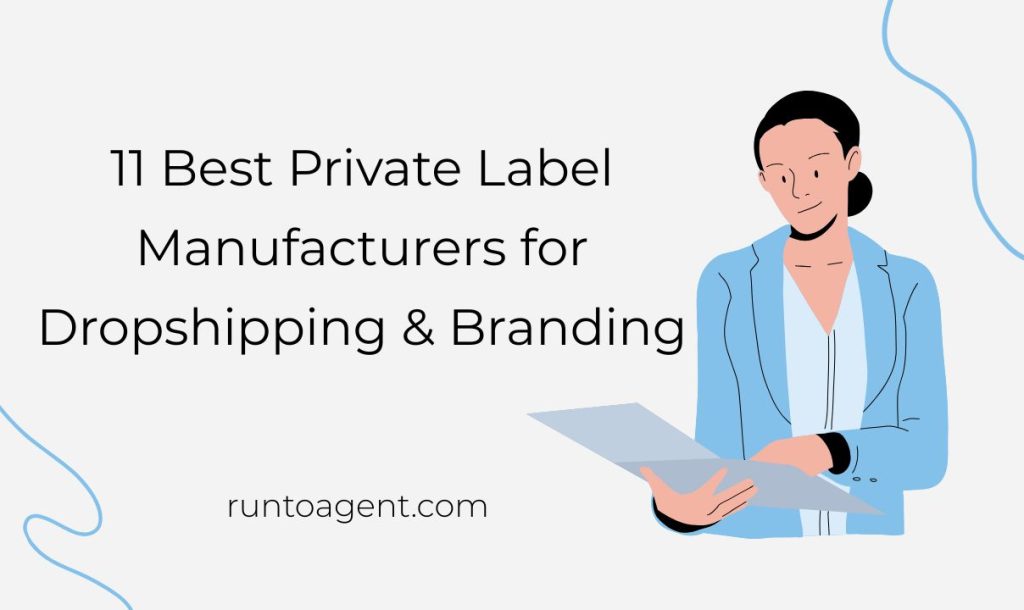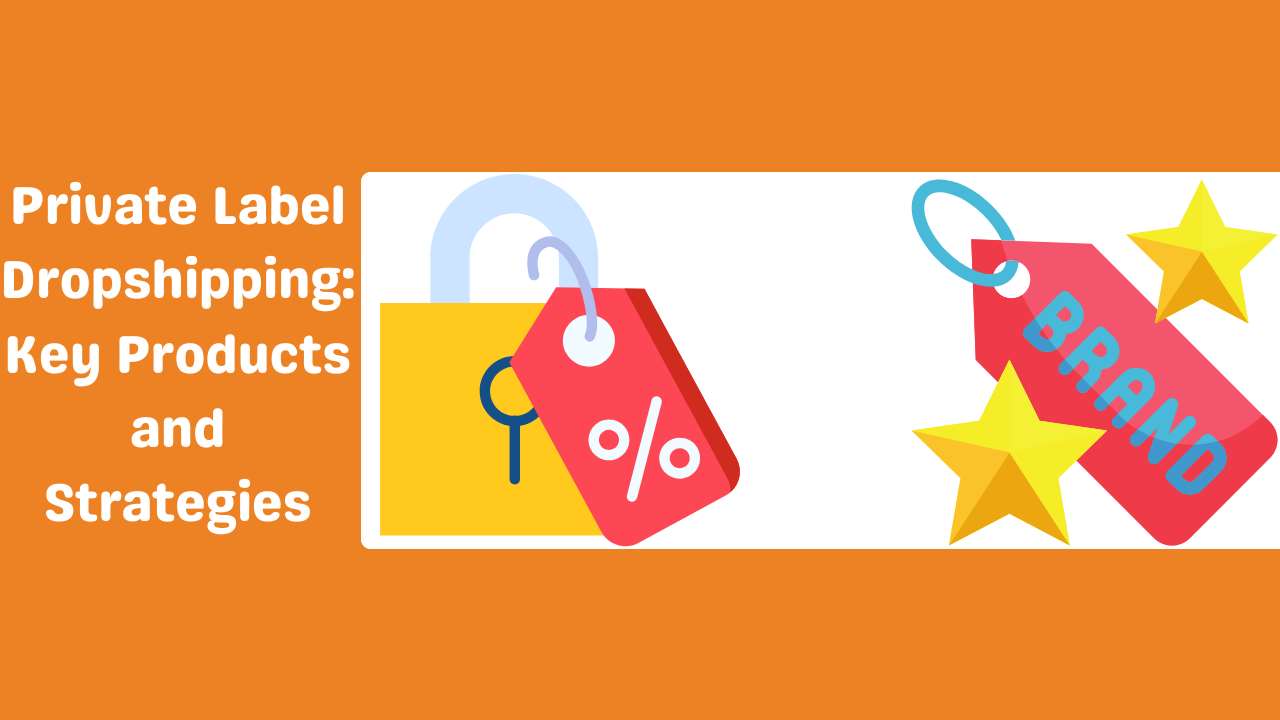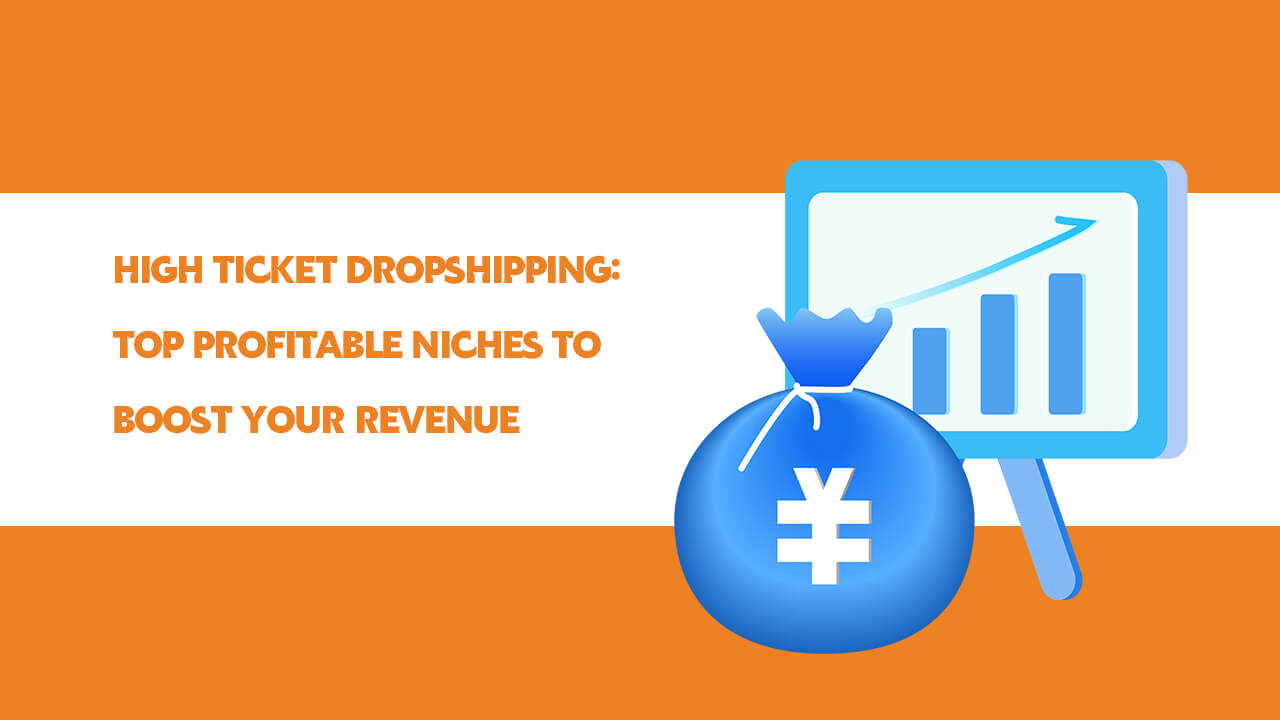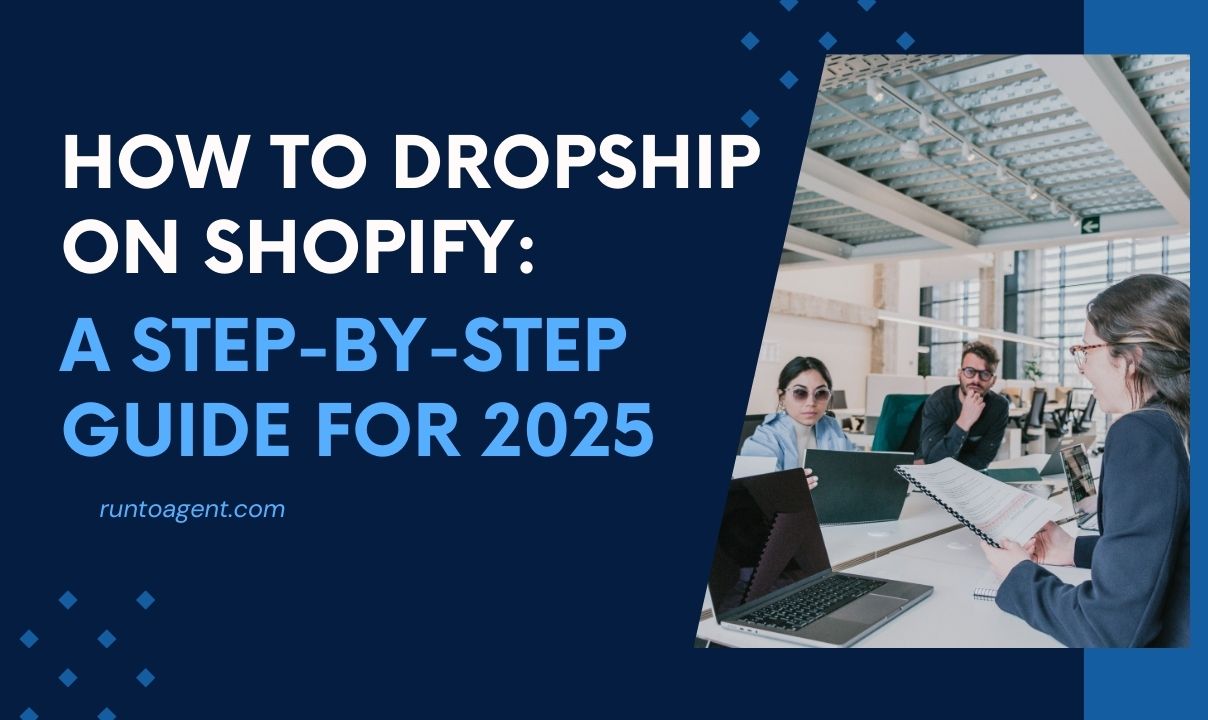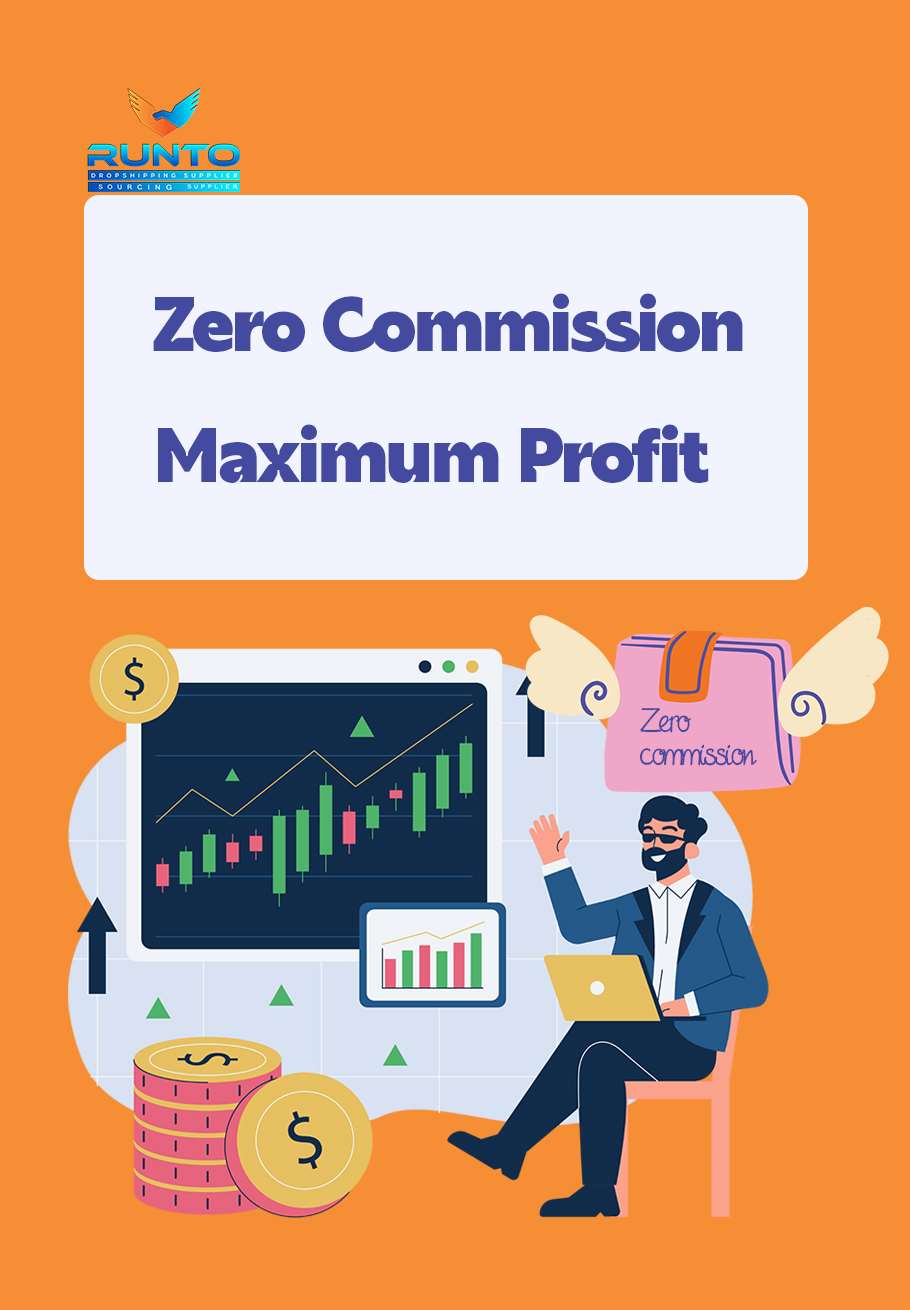Running a dropshipping business without your own brand feels like building a house on rented land. You’re competing solely on price against hundreds of other sellers offering identical products. But here’s the game-changer: private label manufacturers let you transform generic products into branded assets that customers remember and return to buy.
Most entrepreneurs struggle to find reliable private label suppliers who won’t demand massive minimum orders or compromise on quality. After testing dozens of custom branding services providers and analyzing successful brand-building strategies, I’ve identified the private label manufacturers that actually deliver on their promises.
Ready to discover which manufacturing partnerships can help you build a real brand?
1. Why Do Private Label Manufacturers Matter for Your Business?
Generic dropshipping products create a race to the bottom. You compete with thousands of sellers offering identical items, forcing you to slash margins just to stay competitive. The result? Tiny profits, no customer loyalty, and constant stress about the next price war.
But successful private label manufacturing partnerships change everything.
When you work with quality private label manufacturers, you’re not just buying products – you’re investing in brand differentiation. Your customers can’t find your exact products anywhere else, which eliminates direct price comparison and builds genuine brand value through product customization.
Consider the numbers: branded product manufacturers typically command 15-30% higher prices than generic alternatives, according to Nielsen’s Global Private Label Report. A private label supplier who understands your vision can help you capture that premium while building customer relationships that last.
Here’s where most people get it wrong…
They think private labeling process requires massive upfront investments. The white label manufacturers on this list prove otherwise, offering flexible minimums and scalable solutions for growing businesses.
Top 11 Private Label Manufacturers Analysis
| Private Label Manufacturer | Minimum Order | Specialties | Average Lead Time |
|---|---|---|---|
| Runtoagent | No minimum | Electronics, Fashion, Home | 2-5 days |
| Printful | 1 unit | Apparel, Accessories | 3-7 days |
| Printify | 1 unit | Clothing, Home Decor | 2-5 days |
| Gooten | 1 unit | Print-on-Demand | 3-14 days |
| Spocket | 1 unit | Fashion, Beauty | 1-5 days |
| Modalyst | 1 unit | Fashion, Electronics | 2-14 days |
| Supliful | 50 units | Supplements, Beauty | 5-10 days |
| Teelaunch | 1 unit | Apparel, Accessories | 2-7 days |
| EPROLO | 1 unit | General Products | 8-15 days |
| CJDropshipping | 1 unit | Electronics, Fashion | 7-12 days |
| AutoDS | Varies | Multi-category | 5-20 days |

2. What Should You Look for in Private Label Manufacturing Partners?
Finding the right private label manufacturers isn’t about picking the cheapest option. Smart entrepreneurs evaluate five critical factors when building supply chain partners relationships:
Quality consistency comes first. Your brand reputation depends on every single product meeting customer expectations. The best OEM suppliers implement rigorous quality control processes and provide sample products before large orders, following ISO 9001 international quality standards.
Want to know the most important quality indicator?
Look for private label manufacturers who offer pre-shipment photos and quality inspections. This simple service separates serious custom label suppliers from order-takers who ship whatever arrives at their warehouse.
Brand customization flexibility matters tremendously. Your private label dropshipping providers should accommodate custom packaging, product modifications, and branding requirements without treating these as expensive add-ons.
Leading third-party manufacturing partners like Runtoagent have built their reputation on flexibility – they support everything from custom product development to specialized packaging requirements. Their comprehensive custom branding services remove the traditional barriers that prevented small businesses from accessing quality private label solutions.
For businesses specifically interested in packaging solutions, explore our specialized custom packaging & private label branding services that complement manufacturing partnerships.
Essential Private Label Manufacturer Evaluation Criteria
| Criteria | What to Look For | Red Flags |
|---|---|---|
| Quality Control | Pre-shipment photos, samples | No quality verification |
| Communication | 24/7 support, English fluency | Delayed responses, language barriers |
| Flexibility | Custom packaging, low MOQs | Rigid requirements, high minimums |
| Shipping | Multiple options, tracking | Limited shipping, no tracking |
| Reliability | Consistent delivery times | Frequent delays, excuses |
3. Which Private Label Suppliers Offer the Lowest MOQs?
Minimum order quantities crush new entrepreneurs before they start. Traditional private label manufacturers demand hundreds or thousands of units, tying up capital that growing businesses can’t afford to risk.
The private label suppliers changing this game understand modern commerce.
Print-on-demand white label manufacturers like Printful and Printify require zero inventory investment, a model that Shopify research shows reduces startup costs by up to 90%. You only pay for products after customers order them, eliminating financial risk while maintaining full brand manufacturing control.
But here’s what most guides won’t tell you…
Print-on-demand works brilliantly for apparel and accessories, but struggles with electronics, home goods, and specialty products. For these categories, you need private label manufacturers who offer genuine low-MOQ product sourcing.
While print-on-demand offers flexibility, traditional sourcing provides more control. Research tools and market analysis platforms can help you identify winning products by analyzing search volume, competition levels, and market trends. For specific insights into popular dropshipping stores and their success strategies, examine how successful businesses select their products.
Runtoagent stands out by eliminating minimum order requirements across all product categories. Whether you’re testing a new electronics accessory or launching a home goods line, you can start with single-unit orders and scale based on actual demand through their flexible manufacturing partnerships.
Low-MOQ Private Label Manufacturer Comparison
| Private Label Supplier | Electronics MOQ | Fashion MOQ | Home Goods MOQ |
|---|---|---|---|
| Runtoagent | No minimum | No minimum | No minimum |
| Printful | N/A | 1 unit | 1 unit |
| Supliful | N/A | N/A | 50 units |
| Spocket | Varies | 1 unit | Varies |
| EPROLO | 1 unit | 1 unit | 1 unit |
4. How Do You Evaluate Private Label Manufacturer Quality?
Quality evaluation separates successful private labeling process ventures from expensive disasters. Every private label manufacturer claims superior quality, but smart verification reveals the truth.
Start with samples – always. Never commit to any custom label suppliers without testing their actual products. Pay for samples even when they’re offered free; private label manufacturers take paying customers more seriously, as confirmed by Alibaba’s supplier relationship study.
The sample evaluation process matters more than the samples themselves.
Examine packaging quality, product materials, construction details, and finishing standards. Compare these against similar products from established branded product manufacturers in your market. Your private label products should meet or exceed those standards.
Here’s the quality test most entrepreneurs skip:
Order the same product from multiple private label suppliers simultaneously. This direct comparison reveals dramatic quality differences that individual samples might miss.
Communication quality predicts product quality. White label manufacturers who respond promptly, ask clarifying questions, and provide detailed answers typically maintain higher production standards than those offering vague, delayed responses.

5. What Are the Best Product Categories for Private Labeling?
Product category selection determines your private label manufacturing success before you choose a supplier. Some categories reward private labeling; others punish it.
Beauty and personal care products excel in private label markets. Customers make emotional purchasing decisions based on brand perception, ingredient stories, and packaging appeal, with McKinsey research showing that 75% of consumers try new brands based on emotional connection. These factors matter more than manufacturing costs, creating excellent profit opportunities through product customization.
Fashion accessories represent another private label goldmine. Items like phone cases, jewelry, and bags succeed through design differentiation rather than technical specifications when working with skilled custom branding services providers.
Electronics accessories offer surprising private label potential. While core electronics require extensive certification, accessories like phone stands, cable organizers, and protective cases can be easily customized with your branding through experienced OEM suppliers.
Want to know which categories to avoid?
Complex electronics, automotive parts, and heavily regulated products create private labeling process nightmares. Certification requirements, liability concerns, and technical specifications make these categories unsuitable for most private label dropshipping providers.
Private Label Product Category Analysis
| Category | Profit Potential | Competition Level | Customization Ease |
|---|---|---|---|
| Beauty Products | High | Medium | High |
| Fashion Accessories | High | High | High |
| Electronics Accessories | Medium | Medium | Medium |
| Home Decor | Medium | Medium | High |
| Fitness Equipment | Medium | Low | Medium |
| Pet Products | High | Medium | High |
6. Which Private Label Manufacturers Support Custom Packaging and Design?
Custom packaging transforms generic products into memorable brand experiences. The unboxing moment creates the first physical connection between your customer and your brand.
Most private label suppliers offer basic logo placement, but exceptional third-party manufacturing partners provide comprehensive packaging design services. This includes custom box designs, insert cards, product tags, and protective packaging materials.
Printful leads packaging customization with their suite of options: custom labels, packaging inserts, branded packaging, and even gift messages. Their system integrates seamlessly with e-commerce platforms, automating the entire brand customization process.
Runtoagent takes packaging support further by offering complete branding consultation. Their team helps design packaging that aligns with your brand identity while meeting shipping requirements and cost targets. This comprehensive custom branding services approach eliminates the trial-and-error that wastes time and money with less experienced supply chain partners.
Here’s the packaging detail that matters most:
Ensure your private label manufacturers can handle packaging materials that protect products during shipping while creating positive unboxing experiences. Damaged products in beautiful packaging still create disappointed customers.
7. How Do Shipping Times Compare Between Private Label Providers?
Shipping speed directly impacts customer satisfaction and your business reputation. Fast shipping has become a competitive necessity, not a luxury service.
Private label dropshipping providers typically offer the fastest processing times since they produce items immediately after receiving orders. Printful averages 2-7 business days, while Printify can fulfill orders in 2-5 days for most product customization requests.
Traditional private label manufacturers require longer lead times due to inventory management and quality control processes. However, this extra time often results in superior quality and more brand manufacturing options.
The shipping speed secret most entrepreneurs miss:
Choose white label manufacturers with multiple fulfillment centers close to your target markets. Geographic proximity reduces shipping times more than processing speed improvements in manufacturing partnerships.
Private Label Shipping Performance Comparison
| Private Label Manufacturer | Processing Time | US Shipping | International Shipping |
|---|---|---|---|
| Runtoagent | 1-2 days | 5-8 days | 5-8 days |
| Printful | 2-7 days | 3-5 days | 7-14 days |
| Printify | 2-5 days | 3-7 days | 8-20 days |
| Spocket | 1-3 days | 2-5 days | 5-12 days |
| Supliful | 3-5 days | 5-7 days | 10-20 days |

Key Takeaways for Private Label Success
Successful private label manufacturing partnerships require careful evaluation of quality, flexibility, and reliability. The private label manufacturers listed here have proven track records of supporting business growth without demanding prohibitive minimum orders or compromising on quality standards.
Start small, test thoroughly, and scale based on results. Even with the best custom label suppliers, market validation should come before major inventory investments.
Focus on product categories where branding creates genuine value for customers. The private labeling process works best when your brand story enhances the product experience rather than simply adding logos to commodity items through basic product sourcing.
The private label manufacturing landscape continues evolving toward greater flexibility and lower barriers to entry. Take advantage of this trend by partnering with private label suppliers who understand the needs of growing e-commerce businesses.
Success in private labeling requires learning from others’ experiences. Read our collection of dropshipping success stories to see how entrepreneurs transformed simple private label partnerships into thriving brands, and explore our analysis of whether dropshipping can make you wealthy for realistic long-term wealth building expectations.
Frequently Asked Questions
Q1: What’s the minimum investment needed to start with private label manufacturers? Most private label suppliers on this list require no upfront investment beyond sample costs ($20-100 per product). Private label dropshipping providers let you start with zero inventory investment, while traditional white label manufacturers typically require $500-2000 for initial orders.
Q2: How long does it take to develop a private label product? Simple brand customization (logos, packaging) takes 1-2 weeks. Complex product customization requires 4-8 weeks for development and sampling. Most private label manufacturers provide realistic timelines during initial consultations.
Q3: Can I use multiple private label suppliers simultaneously? Yes, diversifying supply chain partners reduces risk and allows category specialization. Many successful brands work with different branded product manufacturers for different product lines while maintaining consistent branding standards.
Q4: What legal considerations apply to private label manufacturing? You’re responsible for product liability, trademark compliance, and regulatory requirements in your target markets. Consult legal counsel for products with safety regulations or international sales through OEM suppliers.
Q5: How do I protect my private label designs from copying? File trademark applications for brand names and logos. Consider design patents for unique product features. Most importantly, build brand relationships that transcend individual product designs when working with trusted manufacturing partnerships.

